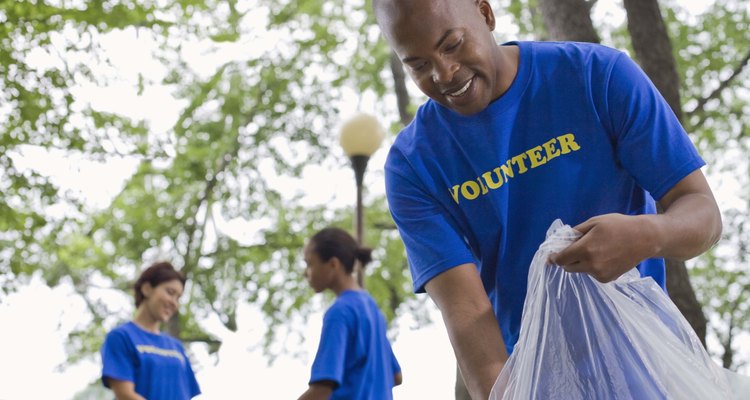
Starting a community outreach program can be personally rewarding as well as a big help to your local area by providing needed resources or services. Outreach work benefits both the recipients as well as to those who volunteer. Whether helping the poor or supporting city-wide needs, community outreach will connect you with your town or city and people from different walks of life.
Form a group of volunteers of like-minded people who want to help your community in similar ways. Meet with the group of volunteers to decide how much time and effort you plan on giving to the community. Give your group of volunteers a name, and come up with a mission statement that reflects what your group wants to do for your neighbors.
Research the needs of the people in your community. Check with the city council, town hall, local businesses, churches and nonprofits for their opinion on what the area needs. Write down a list of projects.
Meet with the volunteers to set up a plan on which projects fit with your mission statement, time commitment and numbers.
Make a list of goals or projects to accomplish within one year.
Promote your mission and goals. Write press releases, flyers and meet again with local churches, nonprofits, and community officials to let them know about your services and work.
Take pictures of each project you complete, and ask for letters of support from the people you have helped in your community.
Start a nonprofit organization according to your state government standards. Visit your state's website for information and application on starting a 501c3.
Write letters to obtain donations and sponsors for your community outreach.
After completing some of your goals, obtaining a 501c3 status and getting donations, write to your local banking institutions to get funding through the Community Reinvestment Programs.
Apply for grants from private sector corporate foundations and the government.
Use the monies from the grants, donations, and sponsors to expand your outreach, such as through an outreach center or purchasing tools to complete more projects. Conduct annual or semi-annual fundraising events. Let both local and government officials know what you are doing and enlist support from faith-based and nonprofit organizations.
Related Articles

How to Advertise in Church Bulletins

How to Start a High School Alumni ...

How to Write a Letter of Intent to ...

How to Start a Non Profit Organization ...

How to Prepare a Church Charter

How to Ask a Rotary Club for a Donation

How to Start a Christian School

Grants to Help Churches

Funding for Christian Projects

How to Get Private Funding for the ...

Ideas on How to Organize a Fun Day for ...

How to Organize Community Events to ...

How to Write Grants for Churches

Fundraising Ideas for Martial Arts

How to Start an Evangelical Ministry

Free Grants for Churches

How to Start a Special Interest Group

How to Get Donations for a Church

Grants for Church Vans

How Can I Make Money for My Church?
References
Writer Bio
This article was written by the CareerTrend team, copy edited and fact checked through a multi-point auditing system, in efforts to ensure our readers only receive the best information. To submit your questions or ideas, or to simply learn more about CareerTrend, contact us [here](http://careertrend.com/about-us).
Photo Credits
Jupiterimages/Creatas/Getty Images